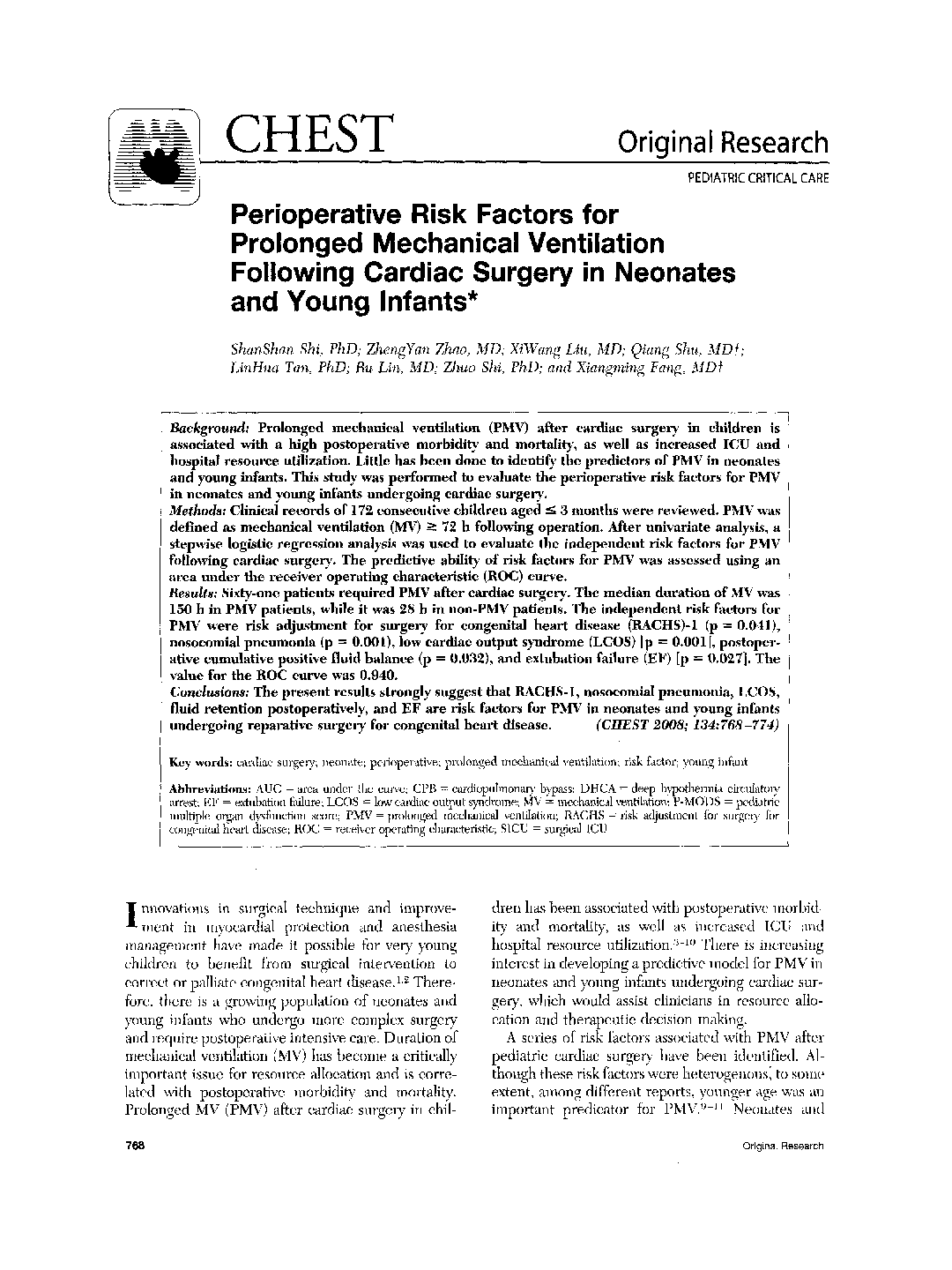| Article ID | Journal | Published Year | Pages | File Type |
|---|---|---|---|---|
| 2902974 | Chest | 2008 | 7 Pages |
BackgroundProlonged mechanical ventilation (PMV) after cardiac surgery in children is associated with a high postoperative morbidity and mortality, as well as increased ICU and hospital resource utilization. Little has been done to identify the predictors of PMV in neonates and young infants. This study was performed to evaluate the perioperative risk factors for PMV in neonates and young infants undergoing cardiac surgery.MethodsClinical records of 172 consecutive children aged ≤ 3 months were reviewed. PMV was defined as mechanical ventilation (MV) ≥ 72 h following operation. After univariate analysis, a stepwise logistic regression analysis was used to evaluate the independent risk factors for PMV following cardiac surgery. The predictive ability of risk factors for PMV was assessed using an area under the receiver operating characteristic (ROC) curve.ResultsSixty-one patients required PMV after cardiac surgery. The median duration of MV was 150 h in PMV patients, while it was 28 h in non-PMV patients. The independent risk factors for PMV were risk adjustment for surgery for congenital heart disease (RACHS)-1 (p = 0.041), nosocomial pneumonia (p = 0.001), low cardiac output syndrome (LCOS) [p = 0.001], postoperative cumulative positive fluid balance (p = 0.032), and extubation failure (EF) [p = 0.027]. The value for the ROC curve was 0.940.ConclusionsThe present results strongly suggest that RACHS-1, nosocomial pneumonia, LCOS, fluid retention postoperatively, and EF are risk factors for PMV in neonates and young infants undergoing reparative surgery for congenital heart disease.
